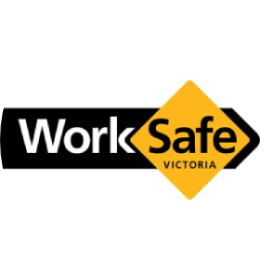A Detailed look at Becoming an HVAC Technician
An HVAC technician specializes in the maintenance, installation, repair of cooling and heating of air quality systems in residential, commercial settings. If you wanted to be a professional HVAC technician, then this post will help you find a way.
HVAC technicians are trained specialists that install, maintain, and repair heating, cooling, and ventilation systems. Their area of work includes robotic duct cleaning and more. Here’s a step-by-step guide to becoming an HVAC technician, including educational requirements, required skills, certification processes, and job opportunities.
1. Understanding the Role
Duties and Responsibilities of an HAVC technician can be classified to
- Installing HVAC systems in residential, commercial, and industrial buildings.
- Maintenance entails doing frequent inspections to ensure that systems run effectively.
- Troubleshooting and resolving HVAC system issues.
- Customer service entails interacting with clients to convey difficulties and solutions.
2. Educational Requirements
- High School diploma or GED
- Math, physics, and vocational education courses can be advantageous.
Postsecondary Education - A basic need for entering the HVAC sector.
- Technical schools/community colleges provide HVAC programs that generally span 6 months to 2 years and cover topics such as system design, electronics, and thermodynamics.
- Apprenticeships: These programs, which combine on-the-job training with classroom teaching, typically span 3 to 5 years and are frequently sponsored by trade unions or contractors.
3. Key Skills and Qualities
Technical skills include knowledge of HVAC systems, equipment, and diagnostic procedures.
- The ability to diagnose and address system difficulties effectively.
- Installation and maintenance must be done precisely to maintain system efficiency.
- The capacity to perform physical duties and operate in a variety of conditions.
- Use effective communication to communicate complicated topics to clients.

4. Certification and Licensing
Certification
Proper certification is required to become a technician. EPA Certification, and NATE certification can be a great addition to your profile. Along with the certification, licensing is needed, however, that vary from state to state and basically involves passing a state exam and work experience.
5. Career Path and Advancement
Entry-Level Positions
HVAC Helper: Helping experienced technicians with installation and maintenance duties.
Junior Technician: Responsible for simple repairs and normal maintenance.
Advancement Opportunities
Experienced Technician: Handling more complicated jobs and larger projects.
Supervisor/Manager: Managing technical teams and projects.
Business Ownership: Establishing your own HVAC contracting company.
6. Job Market
HVAC professionals are projected to be in high demand as building activity increases and energy-efficient systems become more common. Employment possibilities exist in the residential, commercial, and industrial sectors.
7. Continuous Learning and Professional Development
Keeping Up: Because HVAC technology is always improving, it is critical to continue learning. Attending workshops, courses, and professional conferences may assist technicians keep up to date.
Advanced certificates: Obtaining extra certificates in specific areas might improve your professional chances.
Conclusion
Becoming an HVAC technician requires a mix of education, practical experience, and certification. It provides a meaningful job that allows for progression and specialization. With the proper training and perseverance, you may establish a successful career in this critical profession.
For further information about robotic duct cleaning or professional duct cleaning, please email us at https://ductmates.com.au or call 1 300 238 287. We have a group of smart technicians and trained professionals to help you with any related HAVC work.









